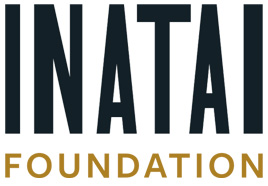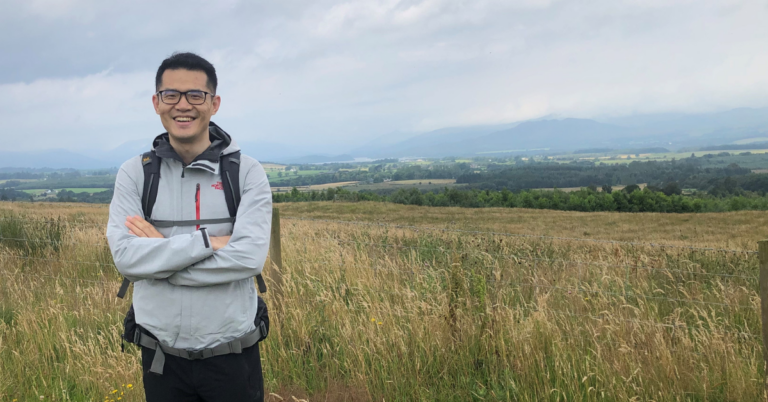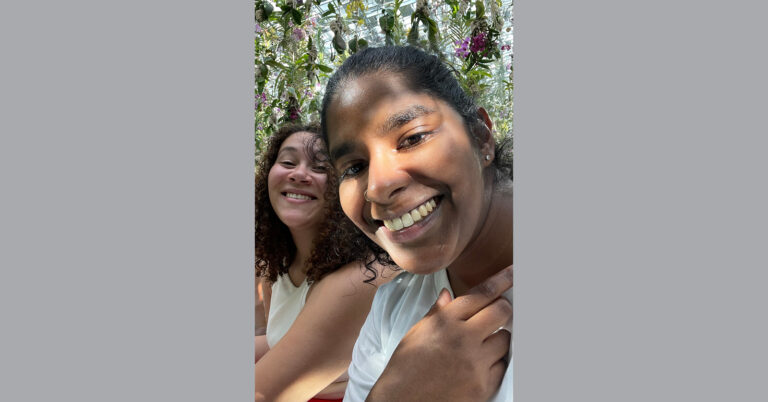Until Feb. 1, 2023, we were Group Health Foundation. This post was written under our former identity. To learn more about our new name, read our announcement here.
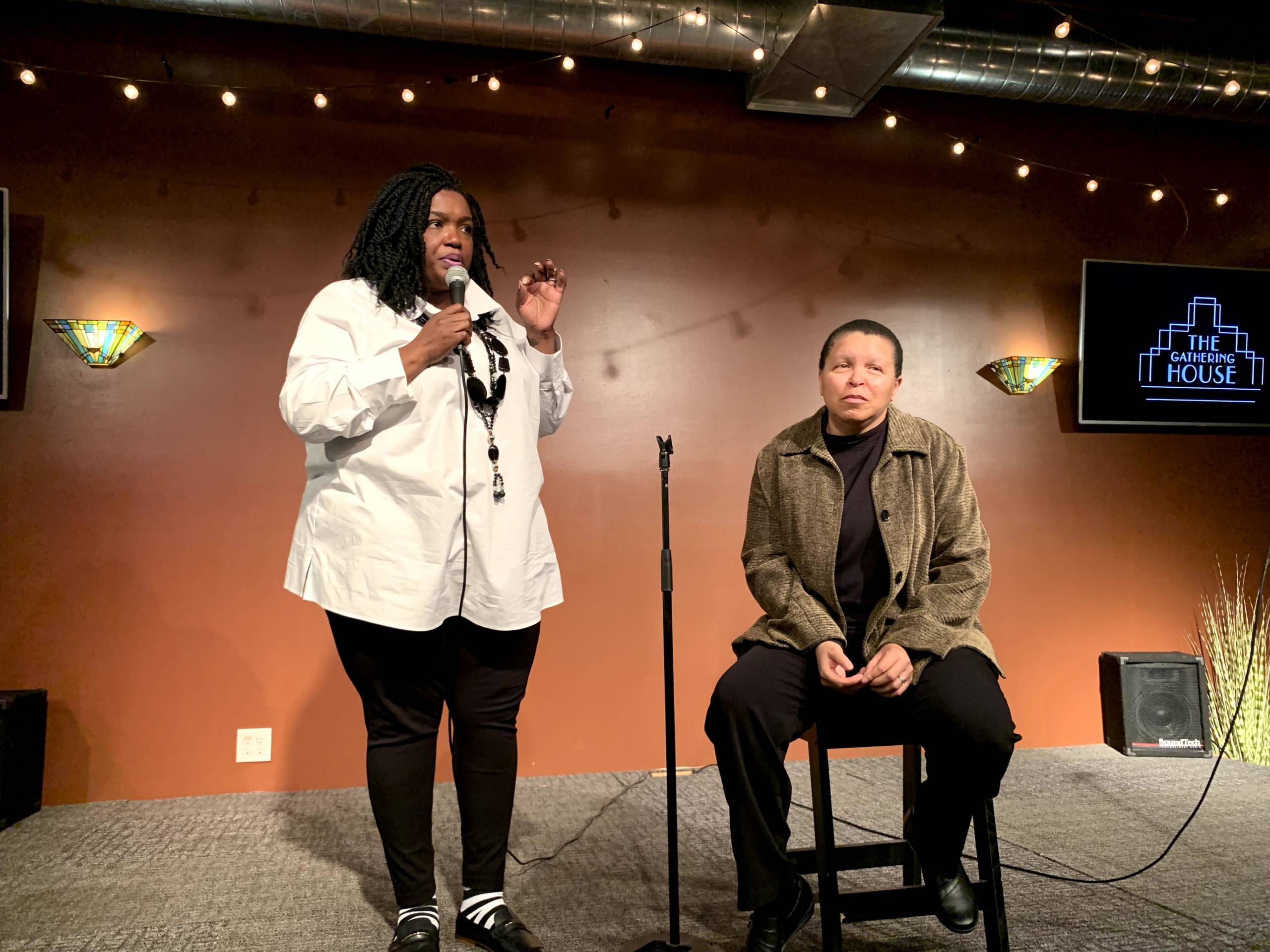
Sandra Williams (right) with Kiantha Duncan (left), who was the emcee during The Black Lens’ five-year anniversary celebration in January 2020. Kiantha was recently elected president of the Spokane NAACP. Photo: Sandra Williams.
Sandra Williams started The Black Lens to share coverage about African-American communities in Spokane and beyond. The monthly paper sought to elevate stories of joy, brilliance, and community building as a counter to the harmful narratives other media outlets often perpetuate about Black people.
Sandra also wanted to shine a light on how systems were failing her community, so the paper’s coverage expanded to stories that would condemn police violence or examine public education inequities. At times, The Black Lens would be the only outlet to cover a story. “I really didn’t see myself breaking news stories,” says Sandra. “I think it just shows that there’s a need for stories like ours; there’s a gap that’s not being filled and I’ve been able to kind of step into that.”
In addition to editing and publishing the paper, Sandra is also the executive director of the Carl Maxey Center, an African-American cultural anchor in Spokane’s East Central neighborhood. Group Health Foundation is a supporter of Sandra’s work, and we are thankful for the time she took to chat with us for this Q&A, which has been edited for length and clarity.
Q: January 2020 marked the fifth anniversary of The Black Lens and, in your first column of the year, you wrote: “We as a nation must undergo a radical revolution of values. We must rapidly begin the shift from a thing-oriented society to a person-oriented society.” Now as we close this year, how do these words ring for you?
A: It’s still true. What COVID-19 has done is unearth this stuff that was already there. And so, how do you get to an equitable society if you’re not willing to sort of dive in and address these tensions. I think we can keep kicking the can down the road, which is what we’ve done. And then you have something like COVID that shows up and it unearths it again. So, I think that quote is as relevant now—if not more relevant—at the end of the year, as it was at the beginning.
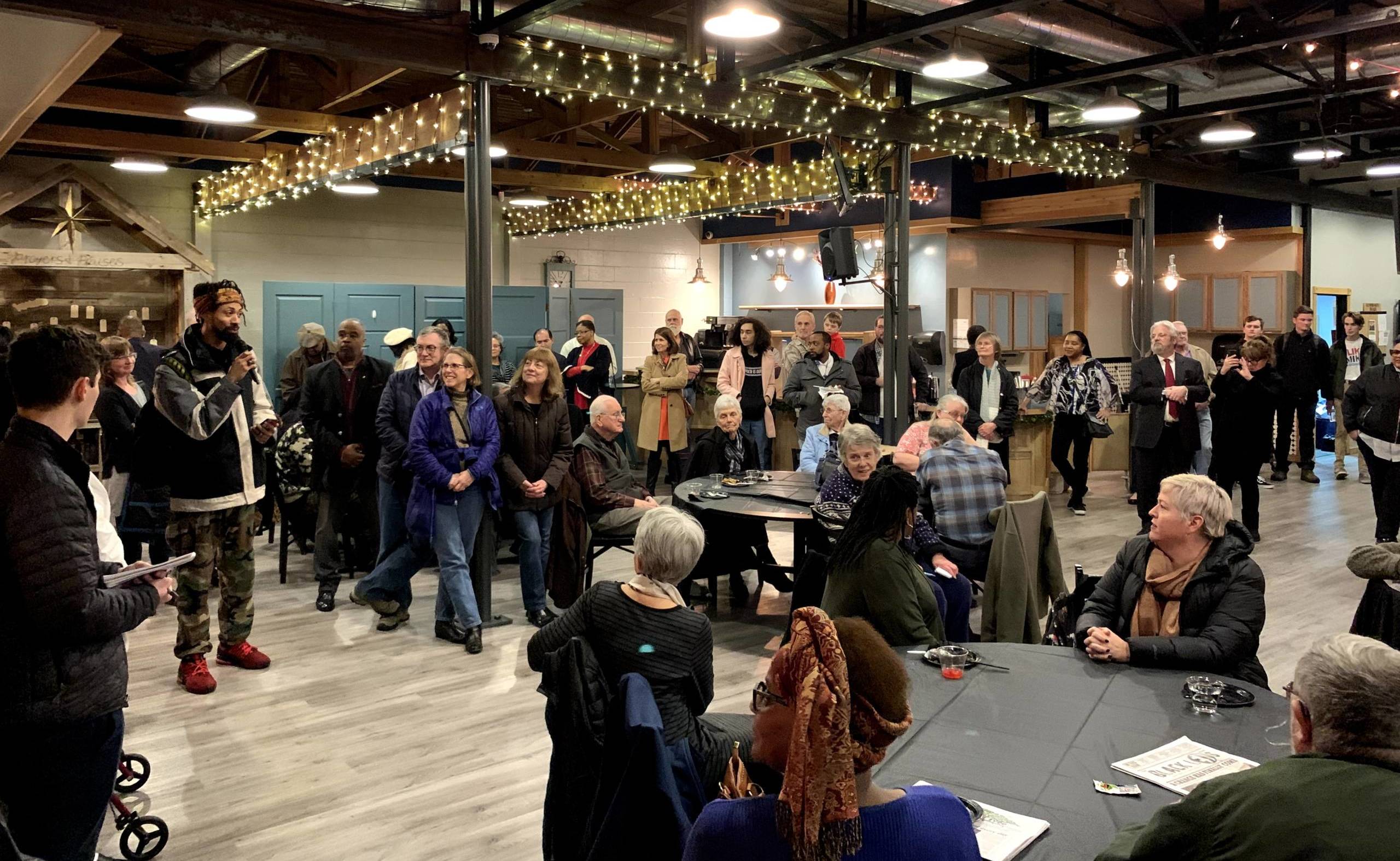
Community members join Sandra in celebrating The Black Lens’ five years in print in January. Photo: Sandra Williams.
Q: Is there anything specific you’d like to share that illustrates what you’re describing?
A: There’s the firing of our public health officer Dr. Bob Lutz. He understood that the social determinants of health are the foundation for all disparities we see. You can’t just address health if you haven’t addressed the root causes, but people were not particularly happy about that. Because if you address that stuff, you will have to start shifting systems. It’s different for folks like me who speak out because we don’t have any power, so who cares? When you have folks who are sitting in positions of power, who start saying those same things well, that’s really threatening. And there are examples like this happening across the state and the country.
And so, the firing of Dr. Lutz is a loss. There’s a loss on a personal level, because he’s a good guy, and good people shouldn’t be treated like that. But there’s a loss of the progress that we’ve been able to make systematically that is now gone. And how do we now get ourselves back to that place? Where we have someone in that position aligned with us and who can do something? How do we get there again? And how long is that going to take? So that’s more loss.
Q: What are the pieces from 2020 that you’ve been most proud of?
A: This has been an interesting year. It started out with the appointment of Betsy Wilkerson, who is the first African American to serve on Spokane’s city council in two decades. It was so important to have that on the cover of the February paper because of all the behind-the-scenes work. It was not just the Black community, but communities of color coming together to identify a person who we all supported, and then lobbying for her to get there. So that was big. I’m really, really proud of that. Not so much because of the article, but because of what it represents for our community.
And then COVID hit in March. Back then, there was no conversation at all about how COVID was impacting Black people. So in April, I decided to do the entire issue of the paper that was all about the impact of COVID on the Black community. I’m really proud of that entire issue. Then June was the Eastern Washington University story that I broke.
In October, I did a story in response to a Spokesman-Review article about a group of white ministers who came together and issued an atonement to the Black community for their participation in racism. The mainstream coverage of the event was all about the white ministers. In response, I printed verbatim a letter written by the Black ministers on the front page, which questioned the authenticity of the repentance. I’m proud of that one because we were the only venue in which the letter was shared.
Q: The Eastern Washington University story was about its sudden decision to close the Office for Diversity and Inclusion and eliminate the vice president position of Dr. Shari Clarke—both of whom are beloved by students and community. The story ran in June and then in July a follow-up story reported on the decision’s reversal because of the public pressure you activated. Could you tell us more about what happened?
A: I got an email from a student that said, this is what’s going on, this is what we heard. The students had sent a letter to the EWU president asking for answers, and she had not responded to them. And they were really frustrated about that. And they asked: “Can you put something about this in the paper?”
I did not expect the blowback that the university got, but I’m happy about that. I didn’t write the story for that reason; I just wrote it to honor the students and what they wanted. And immediately after the story ran, I started getting contacted by people who were really, really upset about the university’s decision.
This was also around the same time that George Floyd was murdered. I got a lot, a lot, a lot of phone calls. People wanted to do something and asked what they could do. People were figuring out and understanding the difference between saying nice things like, “I support you” and taking action that could actually change something. So I said, “Well, as a matter of fact, this is what’s happening at EWU, maybe you can do something about that. Here’s a tangible thing you can do.”
So, people started calling EWU and emailing them—people like community members, state representatives, and city government officials. And the students were hugely grateful. I am happy that I played a role in it, but it was because of the students. You know, it was student action that got the diversity center and Dr. Clarke’s position there in the first place. All I did was just bring it to light, and then it was picked up by other media too, which helped.
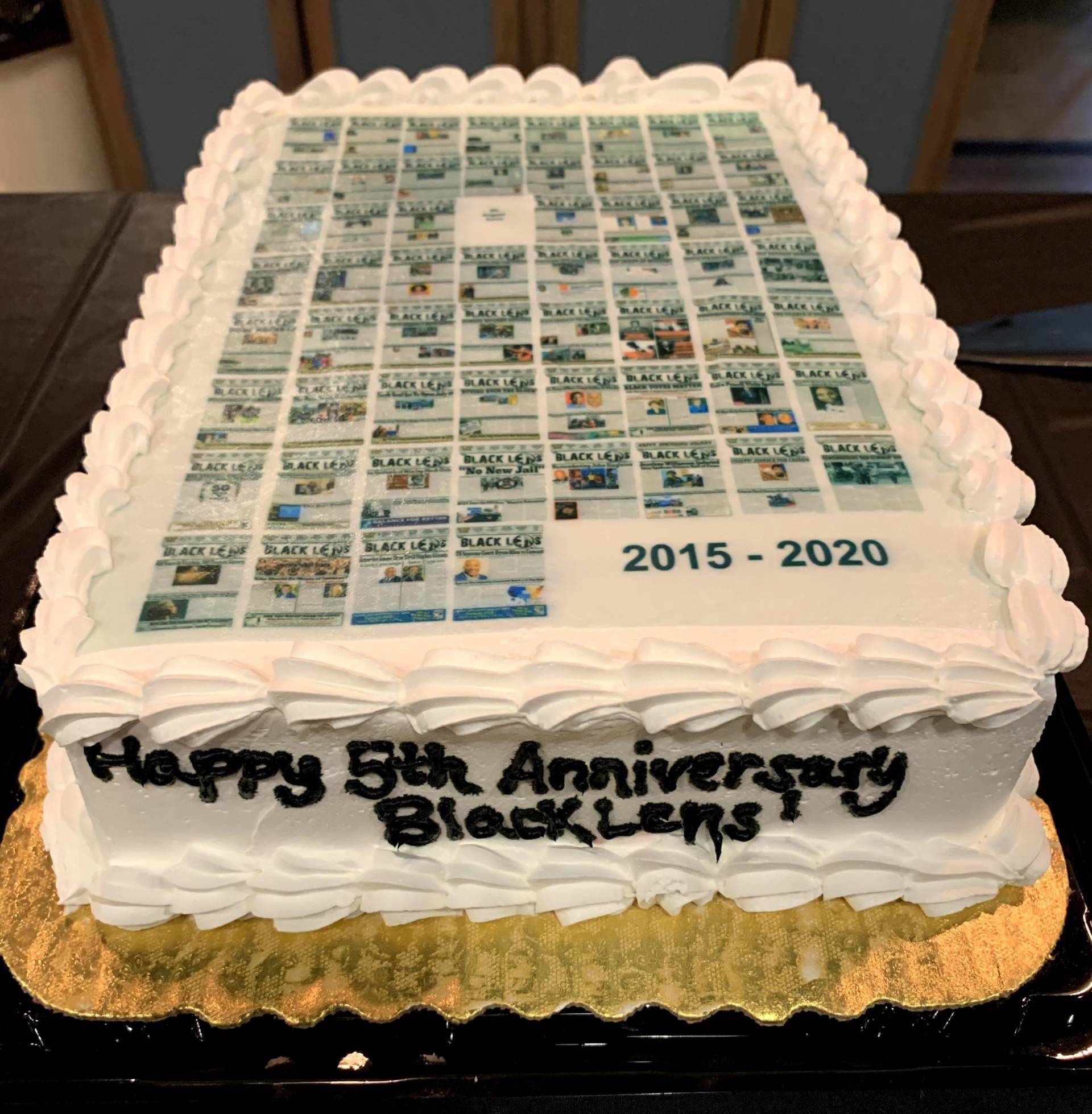
A cake with Black Lens front pages over the years. January 2020 marked the paper’s five-year anniversary. Photo: Sandra Williams.
Q: In addition to editing and publishing the paper, you also founded the Carl Maxey Center, a space for Spokane’s Black community to further educational, economic, and cultural opportunities. Where do you see this—along with The Black Lens—fit into your life’s work?
A: I love Black people. And so my life’s work is to use whatever privilege I have, whatever knowledge I have, whatever access to power I have, to provide opportunities that will uplift and support Black people.
What I would say where the Carl Maxey Center came from is that I was running myself ragged being on everybody’s committees and work groups and task forces. And at the end, nothing changed, or what would change was their stuff. When it came time to focus on Black people, well then the committee went away, or they didn’t have time for that.
And so after decades of doing that, I finally went: “If I took all of this energy, that I’m spreading out to all these people in Spokane, trying to help everybody be more equitable and inclusive—if I took all that energy to just focus all that on Black folks—I wonder what would happen.”
And it’s just a question. I don’t know if anything is going to be different or not. But it surely can’t be worse. And I certainly am still going to be tired, but at least I’ll be tired focusing on my folks. The Carl Maxey Center came out of that desire on my part, but also from folks in the community who said, let’s try something new and different.
Q: What do you see happening at the Carl Maxey Center once you are finished with the renovations and are fully up and running?
A: It’s a space that’s technologically advanced where programming is focused on uplifting Black people. So, whatever we do is through that lens of uplifting Black people: community discussions, racial justice clinics—there are legal clinics around town, but nothing focused on race. We would also like to form a business association for Black businesses, and what Black businesses need, and uplifting Black businesses. You’re going to see some amazing stuff. We have a committee that’s working on a Black-owned credit union. How cool is that?!
Underneath all the programming I’m trying to create a space that fights for the uplifting of our community. One of the things we know from the Dr. Lutz situation is if you stick your head up on behalf of people of color and Black people, you can get your head chopped off. So there needs to be an entity that is at the forefront, that creates safety. That’s what we’re doing for this community.
Q: There are likely community members throughout the state who want to start their own paper too. What advice would you give for someone who wants to start their own publication?
A: That it’s a lot of money? [Laughs] It’s not cheap. I think I would say two things. First, I would say that I think it’s really important that we become creators. We’ve been guided down a path where we become consumers. And I think if all you are is a consumer, you’re easily manipulated by those who are creating the content. It’s important for us to sort of take back that role of being a creator—whatever the medium is, whatever works for people.
Second, this takes a tremendous amount of commitment. I was talking to someone and they mentioned it must have been hard to publish during COVID and I said there’s a deadline every month, so it doesn’t make a difference. If there’s COVID or not COVID, I still need to publish the issue and there will be one after that. Every month, I call my daughter and I tell her, “I’m going to quit.” And she says, “That’s what you say every month, mom.” And then somebody will send me an email of appreciation, and I’ll say, “OK, well, I’m not going to quit.” There’s a level of commitment you need, especially for print.
I will also add that there’s a rich history of the impact that the Black press has had on shifting and shaping our community and uplifting our community. That legacy needs to be preserved and recognized.
Q: We’re now on to 2021. What thoughts do you have about what’s ahead?
A: I would like to say that I’m optimistic about where our country’s headed. I would like to say that I’m optimistic about where Spokane is headed. But I can’t in all honesty; it’s sort of a wait and see. So, I’ll leave you with this, a quote by Malcolm X: “If you stick a knife in my back nine inches and pull it out six inches, there’s no progress. If you pull it all the way out, that’s not progress. The progress is healing the wound that the blow made. And they haven’t even begun to pull the knife out, much less heal the wound. They won’t even admit that there is a knife.”
That’s my thought. Because I don’t think that as a country we have even acknowledged or recognized that there’s a knife in the back of not just Black people, but other communities of color and poor people and immigrants and just so many people. And I would argue there’s a faction in Spokane and other places that are sort of clinging to death to not have to acknowledge that. What happens with that, I think is going to dictate where we’re headed in 2021. So for me, it’s kind of wait and see.
Visit the websites of The Black Lens and Carl Maxey Center to learn more and stay connected.
